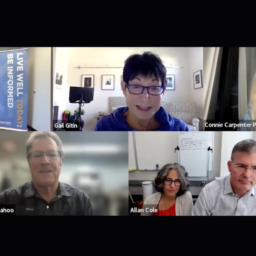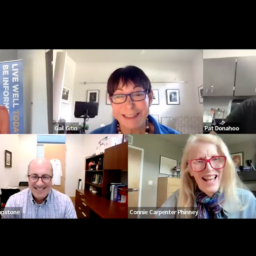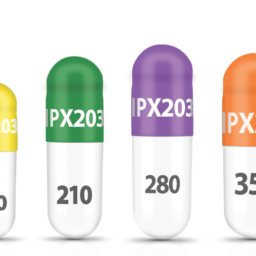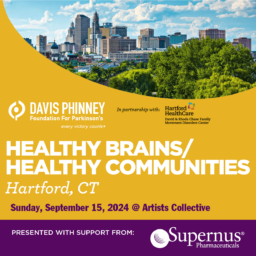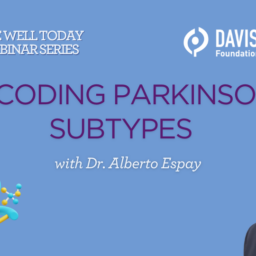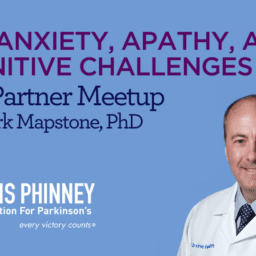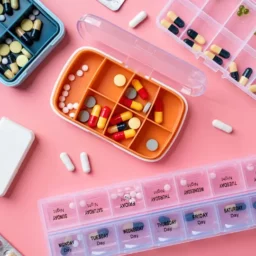A couple of months ago, the Dallas Area Parkinson Society (DAPS) honored Davis Phinney with the Dr. Kenneth H. Cooper Lifetime Achievement Award. A few of our staff members were able to attend and, while they were there, listened to a presentation that captivated everyone in the room. Nikhil Sampath shared his story about how he became interested in the Parkinson’s community and what drives him to keep serving it. We weren’t able to film his presentation in Dallas, so we invited him to share it with us via Zoom. You can watch his presentation below.
How 10th Grader Nikhil Sampath is Making a Difference in the Parkinson’s Community
You can read the transcript below or download it here.
Nikhil Sampath:
Hello everybody. My name is Nikhil, and I’m a 10th grader at Flower Mound High School. My parents are from India, but they immigrated here. All my life, I’ve never really known anything outside of America, and because my grandfather lived in India, I only got to see him once a year at the most.
This created a rift of sorts- I had two worlds, one in India and one in my home country; though I’ve always been enriched by my cultural diversity, there’s a perpetual rift between me and the rest of my family in India. This was only exacerbated by my grandfather’s Parkinson’s. I never got to experience the emotions that my family went through when he was officially given the diagnosis, because I hadn’t been born yet, but I can only imagine that it hurt. And as I grew up, I never understood why he had to suffer the way he did. My childlike innocence clouded the gravity of the situation, and I failed to grasp the hopelessness my family felt. But one thing I did notice was the fact that I simply couldn’t form a bond with him. We simply couldn’t connect. As I grew older, he began to deteriorate fast, and I was afraid I was running out of time to form a bond. But one day, serendipitously, I found something that drew us together- Origami.
I remember the moment as if it was yesterday- I had folded a simple cat out of some paper I had found in a grocery store nearby- I left it next to the wall phone, and after a few hours, my cousin started playing with it. She excitedly began showing it to everybody in the house, giggling and laughing like children do. Although it wasn’t obvious, I could tell that my grandfather was happy about seeing her joy. His eyes spoke to me- they lit up with a certain glow, and from that moment on, I began using origami to connect with him. To me, folding paper transcends all barriers- if it can connect me and my grandfather, two very different people from two very different worlds, imagine the strength of the connections it can create in our community.
My idea to work with DAPS was spawned by the revelation that none of us are all too different. Our differences pale in comparison to the COMMONNESS of art.
The tulip is more than a symbol of Parkinson’s- it is a symbol of how beautiful and powerful the strength of the community is. Over the last few months, I’ve taught many people how to fold a tulip, some old, some young. Some had Parkinson’s, some knew people with Parkinson’s, and some just wanted to make paper flowers. Above all else, though, everybody who folded a flower was extremely happy with the whole process.
One of the classes I taught was at a local nursing home. It was a small one – only 10 people attended. But all of them, once the class was done, began to laugh and compare their tulips, commenting on how fun they were to make- I overheard two quietly talking about how it was a ray of sunshine, which pleased me quite a bit. They all looked so happy with their tulips, I decided not to take them. I let them keep the flowers- some of them attached the tulips to their walkers, others hung them up, and a few kept them in their purses. They aren’t in the wreath made to commemorate the project, but that’s fine. The Tulip Project wasn’t about making a tangible product for display- it was about fostering a sense of community that connected people under the umbrella of PD awareness, like how I found a connection with my grandfather. If I can connect so deeply with somebody so late in their Parkinson’s progression, surely the entire PD community can do so as well.
Parkinson’s is a common disorder, but it doesn’t necessarily have awareness that correlates with this. The only way to truly advance the lives of people diagnosed with Parkinson’s is to help them cope with their struggles, while helping others who have no experience with the disorder understand its impacts. The tulip project successfully connected nearly 1000 people from all walks of life, all ages, nationally, and internationally. And although I could not have done it without the support of my parents, DAPS, and countless others, I had a vision. It was a far-fetched vision – using origami is a rather unconventional approach to raising awareness. But nevertheless, I succeeded. And everybody hearing this has the potential to do the same.
My involvement with the PD community doesn’t end here, and yours shouldn’t either. I implore each and every one of you to try and form your own connections, support groups, and make waves in your own communities- if one teenager can bring together 1000 people over multiple nations, who knows what an entire group of motivated individuals can do for the Parkinson’s community.
Additional Resources
DAPS Recognizes Davis Phinney with the Dr. Kenneth H. Cooper Lifetime Achievement Award
Share Your Message and Begin Soaring with Hope for Parkinson’s
Do you have a story to tell?
If you’re doing work in your Parkinson’s community, we’d love to hear about it. Whether you’re someone living with Parkinson’s, a Parkinson’s care partner, or someone who works with people affected by Parkinson’s, we’d love to know what you’re up to. Learn more and share your story here.



